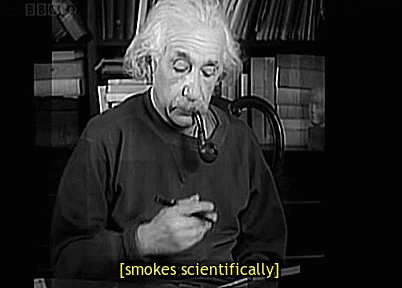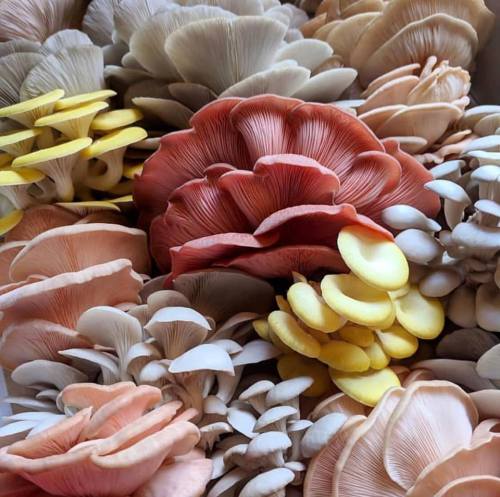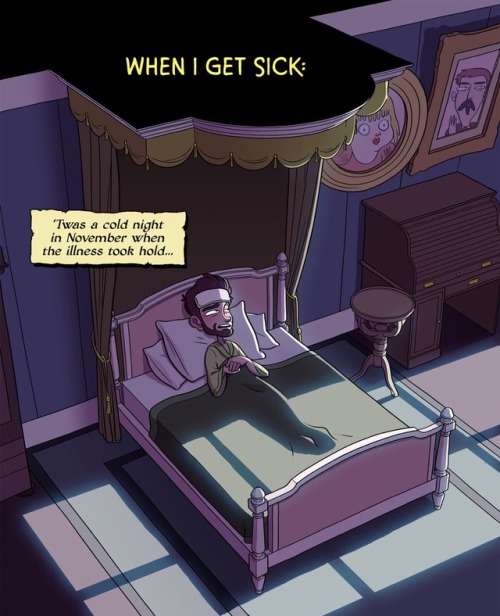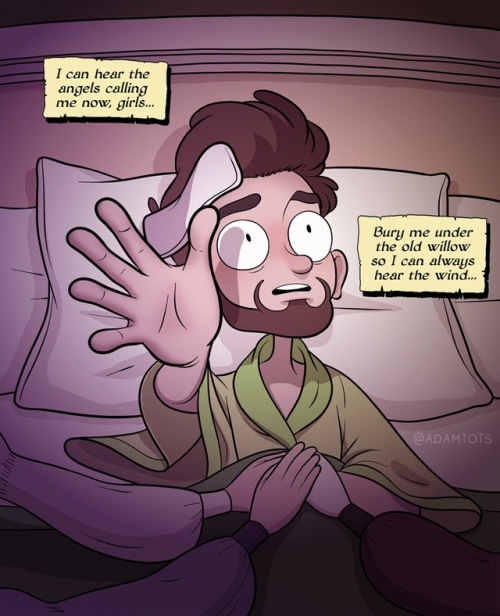Sorry This May Be Too Personal, But I Was Wondering, Since You Give Great Advice And Have Such A Good
Sorry this may be too personal, but I was wondering, since you give great advice and have such a good grasp of the human condition, do you ever fall into the same follies of your askers? Do you have trouble applying the theoretically “correct” action to situations even though you understand dynamics so well? How do you reconcile such a high degree of self-awareness with sometimes making mistakes anyway? I just want to know if it’s possible to reach a point where life is easy because of knowledge
This is a common line of inquiry that comes up when one reaches a certain point in development and I’ve touched on it a little here and there. I can tell you about the experiences of many, not just my own. Throughout my life, I’ve encountered a lot of people who might consider themselves “spiritual truth seekers” in terms of wanting knowledge or answers that would, in one way or another, make life easier. I divide these people roughly into two camps: 1) those who had all they needed materially but were still deeply dissatisfied with life and didn’t understand why, and/or 2) those who sought relief from their long-running psychological issues (perhaps depression, addiction, abuse, etc). I cannot claim that I was as deeply dissatisfied with life as them (though I had my unhappiness) or that I suffered as much as some had (though I’ve had my pains). I was more of an observer because I am interested in studying how people construct meaning in life. Many of them had spent a lifetime reading books, listening to teachers/gurus, attending workshops, communing with fellow seekers, roaming the world on spiritual pilgrimages (if they could afford it). Yet, with all the claims I heard of having “learned so much” on their journey, for many, their problems never really went away or got that much better, and the act of “seeking” itself came to define their identity as it gave them purpose in life when they couldn’t quite find what they were looking for. I won’t criticize these people because I empathize with their motivation; doesn’t matter who you are, pain and suffering are not easy to deal with and it makes sense to seek a remedy.
The more time I spent around such people, examining their ways, beliefs, values, and emotional motivations, the more I realized that many of them were not truth seekers but actually “light chasers” - they wanted the “light” of knowledge to overcome the “darkness” of suffering. Some people may argue that “light” is the same as “truth” because “truth shines a light”. In theory, that may be correct. However, in practice, light chasers actually live in delusion because they only want to acknowledge what is “good” or “positive” in life and hope that this will somehow magically sweep away what is “bad” or “negative”. They believe in what is essentially “mind over matter”, that you can somehow wish away the badness. This often results in splitting oneself down the middle in order to get rid of the “bad” half. They construct a persona that is, for example, full of “lovingkindness” and strive to be it, and there is nothing wrong with wanting to be a better person, but what happens in those inevitable moments when you are most definitely NOT full of lovingkindness? I believe that how a person behaves in those moments is when you finally see the full truth of them; you not only see the light that they hope to be but also the darkness that they try to suppress. If you only understand the self in terms of “light” or “strength” or “intelligence” or whatever “positive” trait, it is like trying to know what the moon is by looking only at the lit side, the result is that your self-knowledge is only half of what it could be and there is another half that you disavow and thus have no awareness of.
I’ve witnessed groups/communities of so-called “enlightened” people devolve into infighting, jealousy, backstabbing as soon as real disagreements arose, on par with office politics in any toxic corporate environment. Then the members would withdraw in extreme confusion and existential crisis, their entire world shaken because they could no longer avoid the fact that they were not the enlightened people they believed they were. Light chasing easily turns into a destructive impulse because you eventually want to violently “force” or “cut” the bad things out, to exorcise what you define as “evil” in yourself and the world. The world is unforgiving in that it does not hesitate to reflect the truth to you, which is why light chasers often confine themselves to like-minded social bubbles. But, eventually, a light chaser is confronted with the reality of darkness and they feel compelled to eliminate it in order to preserve the illusion of light that they have dreamt up. The more you try to push away darkness, the more it creeps over you until it consumes you in your weakest moments (this is what inferior grip is all about).
Therefore, if you want to pursue self-development, you cannot leave the dark side of yourself unexamined. Some people thank me profusely for giving them hope for the first time in a long time, while others accuse me of being too negative/critical and tell me to f**k off. I fully own both assessments and both are true, because I personally believe that you cannot achieve real lightness of heart without confronting the real darkness of the soul. Dancing around a problem or trying to transmute it into something more palatable to one’s sensitivities is just stalling or evasiveness. I believe that the real learning begins when your sensitivities get triggered by uncomfortable truths about yourself because then you are facing down your dark side. However, not everyone is at the stage of ego development where they are psychologically stable enough to handle seeing the truth of themselves, so I often say that the ideas on this blog are not for everyone. If you had approached me at 15 and revealed to me the full extent of my dark side, I might be in a prison or mental hospital today - there is a natural course of development that should be honored.Most people stubbornly want to see themselves in a positive light because ego is a fragile thing and it is much much easier to build heavy defenses around oneself than to forge real self-esteem. To really grow as a person requires nurturing strength and humility, a very tough combo to pull off. Strength is the willingness to bear the burden of knowing darkness but without succumbing to it. Humility is fully admitting ignorance so as to be completely open to learning the truth.
Self-development is not the same as striving for a perfect ideal. Thinking that you know what is “perfect” is like claiming omniscience, it is somewhat arrogant to believe that you (and only you) know what is the best path or the best way. You can always try your best or work to the best of your ability, but it is not useful to believe that you know what is The Best. Perfectionism is just another form of light chasing because it involves building a persona to hide your cracked self-esteem and/or trying to bully the world into being whatever makes you feel good in the moment - all about ego. Perfectionism easily devolves into a destructive impulse that violently strikes at whatever one deems “imperfect”. There is a subtle difference between trying to contort yourself or the world into an image of perfection versus trying to become the person you are meant to be. The former is fakery or delusion that makes almost everything into your enemy, it is a constant struggle against the tide as you deny darkness, and it leads to psychological fragmentation and a hateful attitude as you gradually succumb to darkness. The latter is discovering the truth of who you really are in this world, becoming mature enough to know that light and dark are two sides of the same you, and it leads to a deep sense of wholeness and empathy.
Jung basically believed that confronting individual darkness was the solution to collective evil. You are both the light and the dark. If you see the wisdom in this statement, there is nothing to “reconcile” because the dark will not feel as though it “haunts” you unless you only want to see yourself in the light. For instance, the prospect of making a mistake will not loom over you and produce ever-present fear and insecurity unless you desperately strive towards the image of “a person who never makes mistakes”. Ironically, the more you fear making mistakes, the more likely you are to make mistakes because your mind is too riddled with dark emotions to see clearly. When you fear making a mistake, you fear seeing your imperfection, you even fear feeling fear, then all of your effort is spent on trying to keep your inner darkness away - your ego becomes a black hole that sucks away your mental energy. When you accept that bad exists, then your mental energy is freed to think about how to handle it, as opposed to wasting energy on things like regret, rumination, complaining, or beating yourself up. As you say, my advice to others proves that I am well aware of the many pitfalls that people (which includes myself) can trip into, in fact, I could not possess some of the knowledge I possess without having fallen flat on my face time and again. Why is falling a “bad” thing if these situations yielded me so much useful knowledge? Because falling is painful? Yes, but not all pain is bad. Some kinds of pain are self-inflicted and some kinds of pain disappear quickly if you understand why they appeared, so it is necessary to become more discerning about the different kinds of pain, but you cannot do that if you just shove all pain away into the darkness at the first hint of discomfort. If you don’t appreciate that the pain of making mistakes can teach you invaluable lessons, then perhaps you may say that you really have failed.
You ask whether there is a point where knowledge makes life “easier”. If by “easier” you mean some ideal version of life where you are able to do everything perfectly the first time every time and nothing ever feels hard, then the answer is “no” because you are light chasing and denying the reality of human nature and what it means to live a physical existence. If by “easier” you mean that you are more capable of handling difficulty, disappointment, and failure, then the answer is “yes” because, when you no longer fear these “dark” things, your being is lighter and your mind more open to seeing and handling situations objectively. In living life fully, you cannot avoid every pain, challenge, mistake, setback, or problem, but you can learn to face the truth confidently, without undue fear, resistance, or self-loathing.
“There is no doubt that healthy-mindedness is inadequate as a philosophical doctrine, because the evil facts which it positively refuses to account for are a genuine portion of reality; and they may after all be the best key to life’s significance, and possibly the only openers of our eyes to the deepest levels of truth.” – William James
More Posts from Possiblyfromorion and Others
My first time holding a sloth today 😭
Look, all you science-types classifying “bugs” with your “science names”. Just stop it. The truth is out there. Those are fairies and you know it.

Jeweled flower mantis? That’s a fairy.

Lace bug? Nice try, government. FAIRY.

Satin moth? FUCK YOU. FAIRY.











Credit


Opposite Mirrors

lo que no es.
more on my instagram @matialonsor




My book is finally out! It’s called Super Chill: A Year of Living Anxiously and you can get it wherever books are sold! Amazon actually SOLD OUT of copies, but it should be available on other sites like B&N! Amazon should have more copies soon!
One thing that really bothers me with mbti on tumblr (and the Internet in general) is that intj's are so common even though they're statically less common. It makes me wish I weren't intj (and I'm open for anyone to prove that I'm not intj) just to fit the statistics. The sensor bias is evident throughout this site and honestly I'd very much rather be a sensor than be considered an intuitive masquerading as someone special and rare.
I’m not sure if the bias is called intuitive bias or sensor bias, but I hope you understand that I’m talking about the discrimination intuitive a have over sensors (sorry English isn’t my first language)
Response: I personally think there is a major intuitive bias on Tumblr. There is mass over typing of INTJ, INFJ, and INFP of people and characters. One major reason is free online tests are garbage and type people these three often. I will never forget my friend who turned out to be an ESTJ got typed as an INFJ.
A huge bit comes from the fact that tumblr is full of teenagers just trying to find themselves. They often try to make themselves fit into a concept of themselves rather than letting themselves be. Many mistype themselves and characters because of this way of thinking.
However, intuitive and sensing are both great. We need them both. They are ways of perceiving the world and nothing more. Neither makes you smarter or more special than another. INTJ is rare and it is lonely, almost by design. I mean look at Batman, the most INTJ character ever.
I would separate yourself from that nonsense. It is why I hate sites like personality cafe. They are filled with youths who have barely experienced the world, but are happy to tell you that you are wrong and know nothing. I mean if you look at disney discussion on it every villain is an INTJ because they have plans….it is stressful to look at.
I would focus on your own self discovery. Realize that like everywhere else on the internet, there is mass misinformation about MBTI on Tumblr. It is why I started my blog in the first place.
-
 huangsrandomblogs liked this · 1 year ago
huangsrandomblogs liked this · 1 year ago -
 shallowcloudz liked this · 1 year ago
shallowcloudz liked this · 1 year ago -
 constellatess liked this · 1 year ago
constellatess liked this · 1 year ago -
 boba-n-boards liked this · 1 year ago
boba-n-boards liked this · 1 year ago -
 ibolyafagyi liked this · 1 year ago
ibolyafagyi liked this · 1 year ago -
 gerghysblackcauldron liked this · 2 years ago
gerghysblackcauldron liked this · 2 years ago -
 loveshick liked this · 2 years ago
loveshick liked this · 2 years ago -
 pk930 liked this · 2 years ago
pk930 liked this · 2 years ago -
 terastoldyou liked this · 3 years ago
terastoldyou liked this · 3 years ago -
 areuche7777 liked this · 3 years ago
areuche7777 liked this · 3 years ago -
 astriidd liked this · 3 years ago
astriidd liked this · 3 years ago -
 pensivefine liked this · 3 years ago
pensivefine liked this · 3 years ago -
 syand123run liked this · 4 years ago
syand123run liked this · 4 years ago -
 tomson623 liked this · 4 years ago
tomson623 liked this · 4 years ago -
 jlbeee reblogged this · 5 years ago
jlbeee reblogged this · 5 years ago -
 psychphunk reblogged this · 5 years ago
psychphunk reblogged this · 5 years ago -
 psychphunk liked this · 5 years ago
psychphunk liked this · 5 years ago -
 softredvelvet reblogged this · 5 years ago
softredvelvet reblogged this · 5 years ago -
 anagnosia liked this · 5 years ago
anagnosia liked this · 5 years ago -
 borrowalight liked this · 5 years ago
borrowalight liked this · 5 years ago -
 inourheads-kr7 reblogged this · 5 years ago
inourheads-kr7 reblogged this · 5 years ago -
 inourheads-kr7 liked this · 5 years ago
inourheads-kr7 liked this · 5 years ago -
 capuricrown reblogged this · 6 years ago
capuricrown reblogged this · 6 years ago -
 jasamja liked this · 6 years ago
jasamja liked this · 6 years ago -
 acompletenonentity liked this · 6 years ago
acompletenonentity liked this · 6 years ago -
 lilwavesss-blog reblogged this · 6 years ago
lilwavesss-blog reblogged this · 6 years ago -
 lilwavesss-blog liked this · 6 years ago
lilwavesss-blog liked this · 6 years ago -
 anagnosia reblogged this · 6 years ago
anagnosia reblogged this · 6 years ago -
 artsywolf liked this · 6 years ago
artsywolf liked this · 6 years ago -
 obsessiveemogirl reblogged this · 6 years ago
obsessiveemogirl reblogged this · 6 years ago -
 obsessiveemogirl liked this · 6 years ago
obsessiveemogirl liked this · 6 years ago -
 cadavremacabre reblogged this · 6 years ago
cadavremacabre reblogged this · 6 years ago -
 chidori-me-tf-away liked this · 6 years ago
chidori-me-tf-away liked this · 6 years ago -
 thirtyninetabsopen liked this · 6 years ago
thirtyninetabsopen liked this · 6 years ago -
 emkakk liked this · 6 years ago
emkakk liked this · 6 years ago -
 termite96 liked this · 6 years ago
termite96 liked this · 6 years ago -
 huangsnana-blog liked this · 7 years ago
huangsnana-blog liked this · 7 years ago

